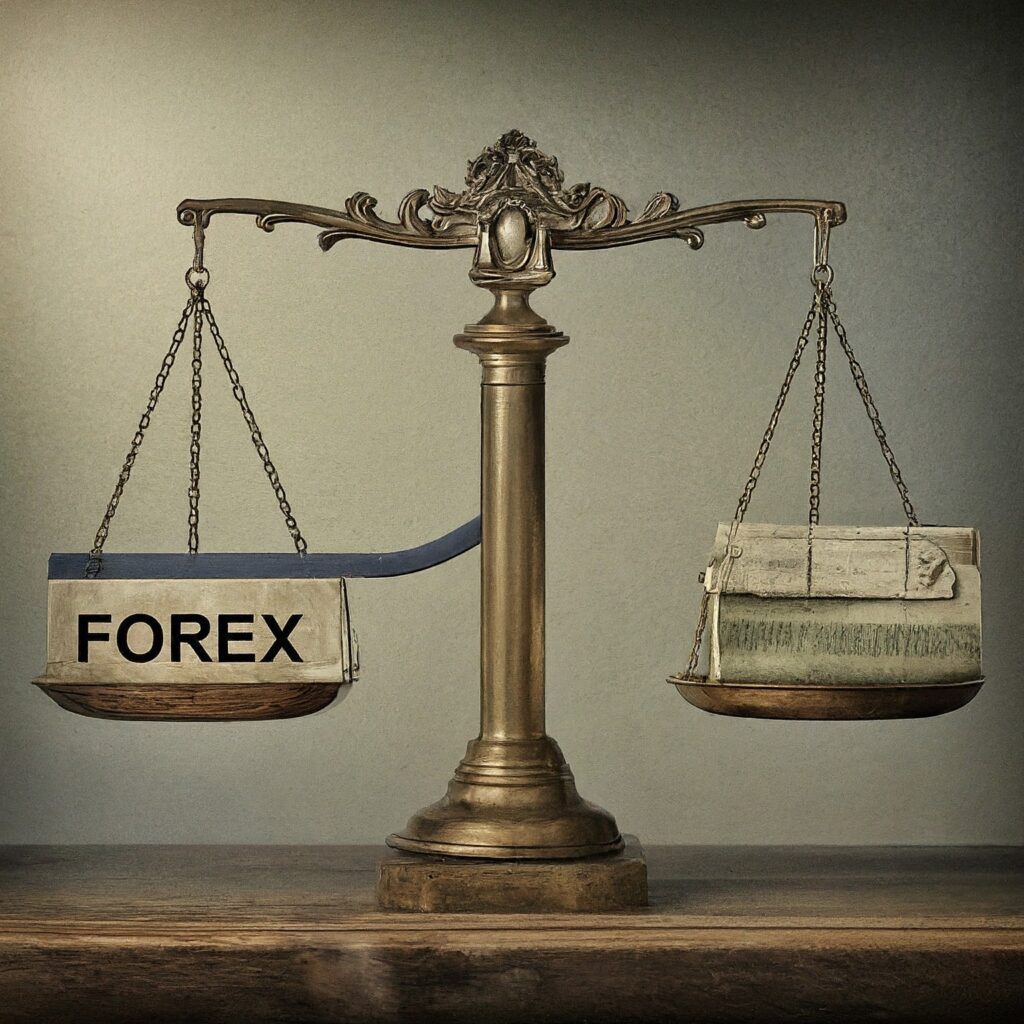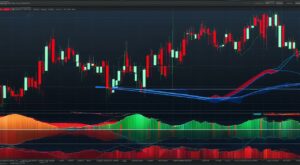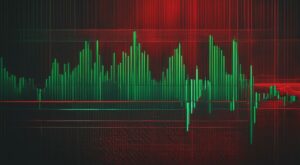Your cart is currently empty!
Is Forex Leverage Haram? What Do You Think?

Affiliate Disclaimer: This post may contain affiliate link or links
Forex trading, a practice that involves currency exchange, has become incredibly popular worldwide. This arena of financial trading has its own terminology, with one such term being “forex leverage”.
Forex leverage can be deemed Haram (forbidden) in Islam due to interest (Riba). It involves borrowing to amplify gains, conflicting with Islamic finance principles. Consult a scholar for personalized guidance.
Contents
Nevertheless, for people following Islamic principles, the question arises, “Is Forex Leverage Haram?” I will explain everything you need to know in great detail that will help you to fully understand your stand.
Today, we delve into understanding Islamic finance, Sharia compliance, halal investing, and of course, the concept of forex leverage.
In this comprehensive guide, we’ll explore the intricate relationship between forex leverage and Islamic finance, presenting an elaborate viewpoint on whether forex leverage complies with Islamic principles.

Is Forex Leverage Haram?
As a trader in the Forex market, it’s crucial to understand the Islamic perspective on financial transactions, especially if you’re a Muslim adherent. One burning question among many is, “Is Forex Leverage Haram?”
Forex leverage is when a broker loans a trader capital to open a position larger than their account balance. In forex trading, leverage increases the trader’s buying power.
From an Islamic finance perspective, the issue of whether leverage is halal or haram centers around the concept of Riba (interest).
Because forex leverage involves borrowing money and paying interest on it if the position is kept overnight, some scholars argue it inherently involves riba, thus making it haram.
However, others suggest that as long as the broker does not charge additional overnight fees, using leverage per se is not haram.
This subject is complex and requires careful navigation.
It is recommended that traders consult with a knowledgeable Islamic scholar to determine the appropriate path for their trading activities.
Always keep in mind that the interpretation of Islamic law can vary widely, so thorough research is essential.

A study been condected with my team, the chart above shows islamic traders who beliefs forex leverage is not haram in blue line vs islamic traders who beliefs forex leverage is haram in red line with each year of study.

What is the Islamic Perspective on Forex Leverage?
Forex leverage refers to a practice that allows traders to open positions that significantly exceed their initial investment. It is often regarded as a double-edged sword as it exponentially increases both potential profits and losses.
From the perspective of Islamic Finance, which fundamentally revolves around concepts like Sharia compliance, and Riba prohibition, the question of “Is Forex Leverage Haram?” has multiple facets.
According to Islamic precepts, the fundamental idea of interest-free trading must be maintained. Any form of interest or Riba is strictly prohibited, which has led some scholars to question the permissibility of forex leverage.
| Perspective | Details |
|---|---|
| Definition of Forex Leverage | Forex leverage is an investment strategy used in the foreign exchange market that allows traders to increase their exposure to various currency pairs by borrowing funds. Forex leverage can amplify both profits and losses. |
| General Islamic Perspective on Investments | Islamic finance follows principles set out in Islamic law or the Sharia. Investment should be ethical, which means not investing in commodities or industries that are haram (forbidden), like pork or alcohol. Islamic finance also prohibits uncertainty, excessive risk, and elements of gambling, which some argue forex leverage includes. |
| Riba (Interest) | Riba is forbidden in Islam. When you use leverage in forex trading, you borrow money and may have to pay interest on that loan, which is not permissible in Islamic law. Therefore, from this perspective, forex leverage is not acceptable. |
| Gharar (Uncertainty) | Gharar refers to uncertainty or ambiguity. In Forex leverage, there is a high degree of uncertainty as the market is highly volatile and one can face substantial losses. Hence, from the point of view of Gharar, forex leverage could be seen as not compliant with Islamic principles. |
| Gambling | Forex leverage can lead to situations where it |
Is Forex Leverage Halal?
To determine whether forex leverage is halal or haram, we must first examine halal investing principles.
Halal investing requires all monetary transactions to be free of riba (interest), gharar (uncertainty), and maysir(gambling).
The analysis of the forex leverage practice through this lens raises questions due to its underlying nature of risk and potential interpretation as a speculative trading practice.
Furthermore, leverage risk and margin trading practices must be analyzed. While some traders percieve leveraging as a means of amplifying their profits, it should be noted that losses can be amplified as well.
This raises questions about whether leverage introduces elements of speculative trading or gambling, which are prohibited in Islamic finance.

What are the Islamic Forex Trading Rules on Leverage?
As a bedrock principle in Islamic Finance, the concept of Sharia compliance prohibits activities considered haram, such as interest-bearing transactions, speculative trading, and uncertainty (gharar).
Islamic forex brokers offer swap-free accounts to abide by these rules. When it comes to the forex leverage rules, there are three major Islamic principles to consider:
- Profit and Loss Sharing (PLS): This means both parties, the lender and the borrower, must share in profit and loss, precluding guaranteed profits.
- Prohibition of Riba (Interest): Any form of interest is considered Riba and is prohibited.
- Avoidance of Gharar (Uncertainty) and Maysir (Gambling): All forms of uncertain or speculative trades are considered gharar and are not permissible. Similarly, maysir refers to games of chance and is forbidden.
The table below shows Islamic forex trading rules on leverage.
| Rule | Explanation |
|---|---|
| No Riba | Leverage in Islamic trading must not incur any form of interest, also known as Riba. If any form of interest is charged on the leveraged amount, the trade becomes non-compliant with Sharia law. |
| Instant Settlement | Islamic rules mandate that any forex transaction should be completed immediately and the transaction should be free from delays. This means that the funds need to be exchanged on the spot and traders can no longer borrow currency to pay back at a later date. |
| No Speculation (Gharar) | Speculation, or Gharar, is also prohibited under Islamic law. This prohibits the use of speculative tools and contracts such as leverage that could create uncertainty and risk. |
| Hedging Rules | Hedging is allowed under Islamic law if it is done to mitigate risk and not to speculate prices. But the majority of scholars consider it as a risky method of forex trading. Therefore, it needs to be conducted cautiously in order to avoid the violation of Islamic law. |
| No Betting (Maysir) | Maysir or gambling is not permitted in Islam. Accordingly |

What is Islamic Finance and Forex Leverage?
Islamic finance is finance with a conscience. It discourages activities that are harmful to the society and encourages wealth generation through hard work, entrepreneurship, and ethical and responsible business practices.
Islamic banking, for instance, uses unique financial instruments like Murabaha financing.
Forex leverage, meanwhile, refers to the use of borrowed capital for increasing the potential return of an investment in the currency pairs.
It is predominantly used in spot forex trading, with longer-term implications.
The key contention from an Islamic standpoint is if forex leverage has elements of Riba or introduces additional risk or uncertainty (gharar), which are not permissible as per Sharia compliance.
The table below shows types of Islamic finance with description.
| Type of Islamic Finance | Description |
|---|---|
| Murabaha | A sales contract where the bank purchases and then sells an asset at markup. |
| Musharakah | A partnership in which profit-loss sharing is agreed upon. |
| Mudarabah | A profit-sharing financing method between two parties. |
| Ijarah | A leasing contract under which the bank rents out an asset to a customer. |
| Istisna | A contract for manufacturing goods and commodities. |
| Salam | An advance payment for goods delivered at a future date. |
| Takaful | Islamic insurance where members contribute money into a pooling system. |
| Sukuk | Islamic bonds, in which investors earn profits, not interest. |
| Wadiah | A safekeeping service where the depositor receives guarantee of safe return. |
| Qard Hasan | An interest-free loan given for either welfare purposes or charitable acts. |
| Rahn | An Islamic pledge contract or security contract. |

Is Leverage Considered Riba in Forex Trading?
To ascertain whether forex leverage is seen as Riba in forex trading, it’s essential to grasp the concept of “Riba”.
Riba, often translated as “usury” or unjust or interest, exploitative gains made in trade or business under Islamic law, is strictly forbidden.
Forex brokers typically do not charge interest on leverage per se. They instead profit from the spreads – the difference between the buy and sell prices of currency pairs.
Therefore, if a forex trade is left open overnight, brokers will typically charge overnight fee or swap fee.
Nonetheless, with Islamic or swap-free accounts, these fees are waived off, making it possible for Muslim traders to engage in interest-free trading consistent with Shariah law.
| Forex Trading InterestIs it Forbidden by Islam? | |
|---|---|
| Daily Rollover | Yes |
| Spot Trading | No, if there is no delay in the contract execution or delivery of the currency |
| Forward Forex Contracts | Yes, as it involves certain levels of uncertainty or ‘gharar’. |
| Swap Transactions | Yes |
| Options/Currency options | Yes, as it contains elements of speculation or ‘maisir’. |
| Commodity Futures/Currency futures | Yes, as it involves certain levels of uncertainty or ‘gharar’. |
| Margin trading | Depends on the conditions; It could lead to riba (interest), which is forbidden. |
| Leverage trading | Yes, if it involves interest payments/riba |
| Hedging trades | Yes, if it involves interest payments/riba |
| Binary Options trading | Yes, as it contains elements of speculation or ‘maisir’. |
Please note that it is essential to consult with a knowledgeable Islamic scholar or a reliable Islamic finance institution for a final verdict on different types of trades in Forex.

What are Islamic Finance and the Ethics of Forex Leverage?
According to Islamic principles, trade must be conducted in a manner that respects society’s moral fabric and contributes to the community’s wellbeing.
Therefore, aspects of fairness, justice, transparency, and avoidance of harm (to oneself and others) are all part of Islamic finance. So, does forex leverage abide by the ethics as set out by Islamic finance?
Potentially yes, if the practice of forex trading involves thorough due diligence, effective risk management, and compliance with the other ethical guidelines of Islamic banking.
Is Leverage Gambling in Islamic Forex Trading?
Islamic principles consider speculation akin to gambling, and therefore, not permissible. Forex trading, and by extension, leverage, is inherently risky.
And without proper risk management strategies like position sizing and money management, it can become similar to gambling.
But with prudent strategies that involve understanding the leverage ratio, margin trading rules, recognizing leverage risk.
And using leverage restrictions and leverage regulations to one’s advantage, it can be seen as a legitimate business risk rather than gambling.

Is Leverage Allowed in Halal Forex Trading?
The use of leverage in Halal forex trading requires balancing the potential for profit against the risk of loss.
Linking each trade to a real physical asset, using spot forex trading, and ensuring that trades are delivered within two days helps maintain Sharia compliance.
Forex brokers who adhere to these principles and offer swap-free accounts to eliminate any form of Riba or interest, thus ensure that forex trading keeps in line with Islamic principles of halal investing.
List of Forex Brokers With Halal Types Of Account
| Broker | Notes |
|---|---|
| OctaFX | Offers a swap-free trading account |
| Pepperstone | Offers a swap-free trading account |
| FXTM | Offers a swap-free trading account |
| HotForex | Offers a swap-free trading account |
| XM | Offers a swap-free trading account |
| Tickmill | Offers a swap-free trading account |
| Admiral Markets | Offers a swap-free trading account |
| IC Markets | Offers a swap-free trading account |
| Alpari | Offers a swap-free trading account |
What is the Haram Aspects of Using Leverage in Forex?
The key Haram aspect of forex leverage can be attributed to the lack of full control and uncertainty over the investment objectives, leading to potential losses.
Margin trading without proper risk tolerance, capital preservation, and returns optimization strategies, can lead to disasters, rendering it haram.
Taking excessive risk or overleveraging, poor account equity management, ignoring margin calls, or trading without a stop-loss order are trading practices that contradict Islamic finance’s ethical trading principles.

Conclusion
In conclusion, the question of ‘Is Forex Leverage Haram?’ is subject to various ethical and religious interpretations within the sphere of Islamic finance.
It appears that provided certain conditions are fulfilled, forex trading can indeed be viewed as permissible or halal.
These conditions encompass effective risk management, avoiding overleveraging, and operating through reputable brokers under proper regulatory oversight.
Additionally, maintaining transparency and aligning with the principles of Sharia advisory boards can contribute to ensuring that forex trading is performed within the permissibility boundaries of Islamic law.
However, Muslim traders must be cautious. Practices that increase counterparty risk, involve deceptive contractual obligations, or lack proper financial literacy are forbidden.
So, while forex leveraged trading may be viewed as halal by some, it is the responsibility of each individual trader to ensure their trading aligns with their religious beliefs.
Download Accurate Buy Sell Volume Indicator
Other related articles
- Trade Report Indicator: Indicator for Forex Traders
- Trend Profiteer Trading System: A Trader’s Must Have
- Quantum Trend Sniper Indicator MT4: Free Download
- German Sniper Indicator: Unveiling its Power
- Mastering MACD Intraday Trend | Indicator Free Download
- Crazy Accurate 5-Days Breakout Strategy: Unlock Success

Joseph Benson, I have been trading forex for more than 15 years now and I am still trading actively, a content writer, an Architect also SEO expert, learn how to trade easily with me.










Leave a Reply